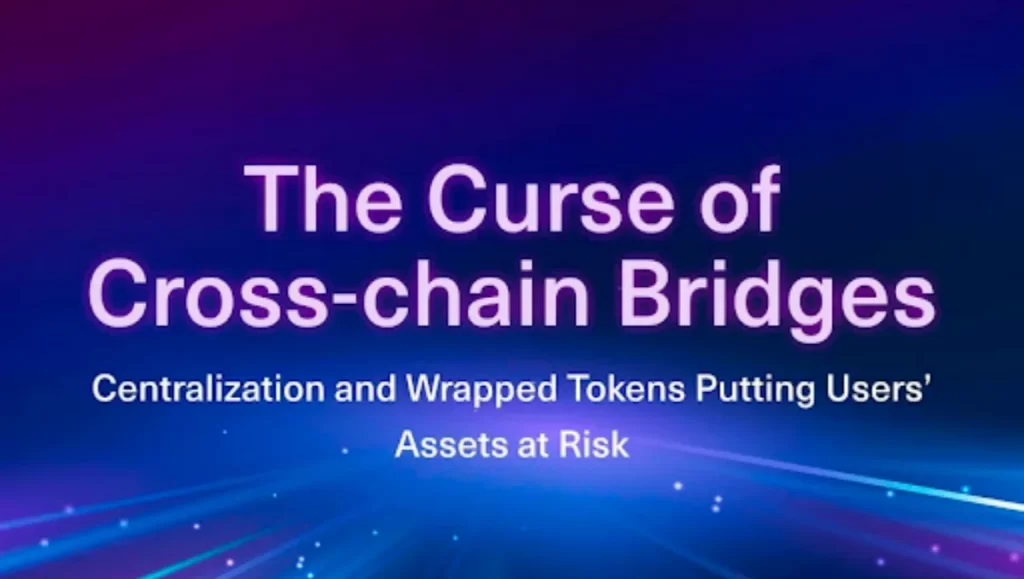
The post PortalDeFi’s Revolutionary Peer-to-Peer Atomic Swapping DEX Built On Bitcoin appeared first on Coinpedia - Fintech & Cryptocurreny News Media| Crypto Guide
Although 2021 was the year of decentralized finance, it was also marred by many hacks and security incidents. Particularly cross-chain bridges pose a significant threat to user funds.
Portal takes a vastly different approach to cross-chain value transfers by leveraging the Bitcoin network.
Funds Aren’t Safe With Cross-Chain Bridges
If there is one lesson for DeFi enthusiasts to remember, it is how cross-chain bridges pose a significant risk. Half a dozen incidents occurred in the past few months, all of which put user funds at stake.
Although the amount of money lost to hackers is somewhat limited, these exploits should not be allowed to exist in the first place.
Were it not for the hacker returning over $600 million to Poly Network and Jump Crypto replenishing Wormholde for 120,000 ETH; the situation would be much worse.
The potential loss of funds is a serious threat putting a strain on the decentralized finance industry. Although this technology makes sense to move value between chains, the model introduces unnecessary steps and risks.
Wrapping tokens, minting assets on another chain, using validators, and other centralization aspects make this model unfavorable and unsustainable. It is not viable in a decentralized industry.
Neil Player of crypto security engineering firm Staghead Crypto adds:
“Cross-chain bridges present a unique set of security risks and these types of exploits are not a surprise. It is a reminder how bleeding edge a lot of the applications that run on top of blockchains are. Exploits such as what occurred on Wormhole are expected to cause growing pains as the technology and techniques associated with bridging assets matures.”
The introduction of the centralization aspect puts user funds at risk. Moreover, it showcases how bad things can get when developers forget to validate all “guardian” accounts, like Wormhole.
Although that aspect has been resolved now, its mere existence in the first place raises many eyebrows. When there is no 100% guarantee of decentralization and trustlessness, cross-chain bridges are not the solution people are looking for.
A Different Approach By Portal
Now that it has become apparent cross-chain bridges are a security risk, new solutions need to be found.
The team behind Portal has taken a different approach while still letting users swap value across different networks. Portal is a cross-chain DEX built on Bitcoin and requires no wrapped tokens or third-party custody.
Instead, all transactions rely on a peer-to-peer approach. Both parties lock funds during the transaction process. If everything checks out, the values will be swapped between peers directly.
However, if there is an issue, the transaction rolls back, and participants keep their original assets. A straightforward approach that introduces no centralization in any way, removing attack vectors plaguing cross-chain bridges from the equation.
Portal lets users trade native Layer-1 assets across different blockchains through its peer-to-peer swapping approach.
Not dealing with wrapped tokens or validators processing the transaction is a significant step forward. Moreover, the peer-to-peer aspect ensures there are no unexpected delays, blocked funds, exploits, or other drawbacks one might experience when using cross-chain bridges.
Exploring value transfers not involving cross-chain bridges is essential. Even Vitalik Buterin is concerned over the security of these bridge-based solutions and how 51% of attacks may affect them.
A blockchain can recover swiftly from a 51% attach, but a cross-chain bridge lets culprits steal funds by minting tokens on another chain.
There is no need to introduce more ways to put users’ assets at risk whatsoever.

 3 years ago
221
3 years ago
221














 English (US) ·
English (US) ·